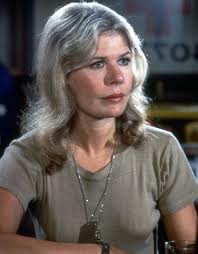
A Writer’s first lesson in comic timing.
WHILST participating in a television interview, Cate Blanchett apologised for answering a question about acting using an American accent, explaining that to her, ‘American English’ is the language of comedy, after years of watching M*A*S*H.
Being of exactly the same generation, I can only agree with her.
This long running sitcom, set in a Mobile Army Surgical Hospital during the Korean War of the 1950s, was my very first ‘adult’ experience of television.
As the child of a nurse, it was considered appropriate viewing for my first years of staying up late.
“It’s a well-known maxim that all great comedy springs from the worst situations of human deprivation.”
The fun-filled yet desperate world the characters inhabited worked its way into the very fabric of my writer’s brain, just as it was in the process of forming.
When I am writing comedy, all the classic scenarios of M*A*S*H spring to mind, because between 1972 and 1983 the writers explored every comic angle they could think of. Thanks to syndication, the series has been playing across the world’s television screens for four times longer than it aired originally, and counting.
The secret of the comedy lay not in what was overtly funny, but rather in what was deadly serious about life for Americans stuck in Korea patching-up the wounded.
It’s a well-known maxim that all great comedy springs from the worst situations of human deprivation. Pathos tempers farce. Sadness frames wit. Laughing in the face of death is always more three-dimensional than laughing or crying alone. The two states are very close in the human experience.
M*A*S*H capitalised on those extremes, from the original book MASH: A Novel About Three Army Doctors by ‘Richard Hooker’ (a pseudonym for Dr. H. Richard Hornberger and W.C. Heinz), where the basics of the show’s characters were created, to Robert Altman’s 1970 satirical black comedy feature film M*A*S*H and the series it inspired.
But the TV series had the time and the following to explore the dynamic to its extremes, and evolved from slapstick (think ‘Hot Lips’ Houlihan and Frank Burns cavorting, as though no-one knew they were having an affair), to a kind of black comedy that was borderline drama by the time the show took its final curtain call in the feature-length series finale Goodbye, Farewell and Amen (1983).
For me, the array of three-dimensional male characters who joked, sported, laughed, cried, cross-dressed and generally expressed themselves in ways that it was rare to see men behave in the ‘real world’, were beautifully countepointed by one of my all-time acting heroes – Loretta Swit.

Stunning, prickly, sympathetic, quick-witted, great at her nursing job, devoted to the army and her country, yet willing to take emotional risks at the drop of a hat, how could you not love Margaret Houlihan, the winning smile that lit up the khaki cloud of Korea?
Swit’s work as Major Houlihan ranks amongst the best-drawn television performances ever, but she had her work cut out for her. Alan Alda (who is the only actor to perform in more M*A*S*H episodes than Swit, as Captain ‘Hawkeye’ Pierce), paid tribute to her achievement in transforming the ‘sex bomb’ tag that the role was originally drawn with, by turning ‘Hot Lips’ Houlihan of 1972 into simply, ‘Margaret’, by the show’s end in 1983.
Interestingly, this change coincided with the women’s liberation movement, and remains one of Pop Culture’s best examples of the metamorphosis of a stereotype.
Apart from being the best education in comic timing I can think of, the series is also a great example of time economy in a script. Next time you watch an episode, notice how the half-hour format restricts the use of too much foreshadowing and requires simple, fast set-ups to every laugh.
If you’re re-writing a script and you need to touch-base with how it should be done, whether it’s a comedy or a drama, watch an episode of M*A*S*H.
© Michael Burge, all rights reserved.

